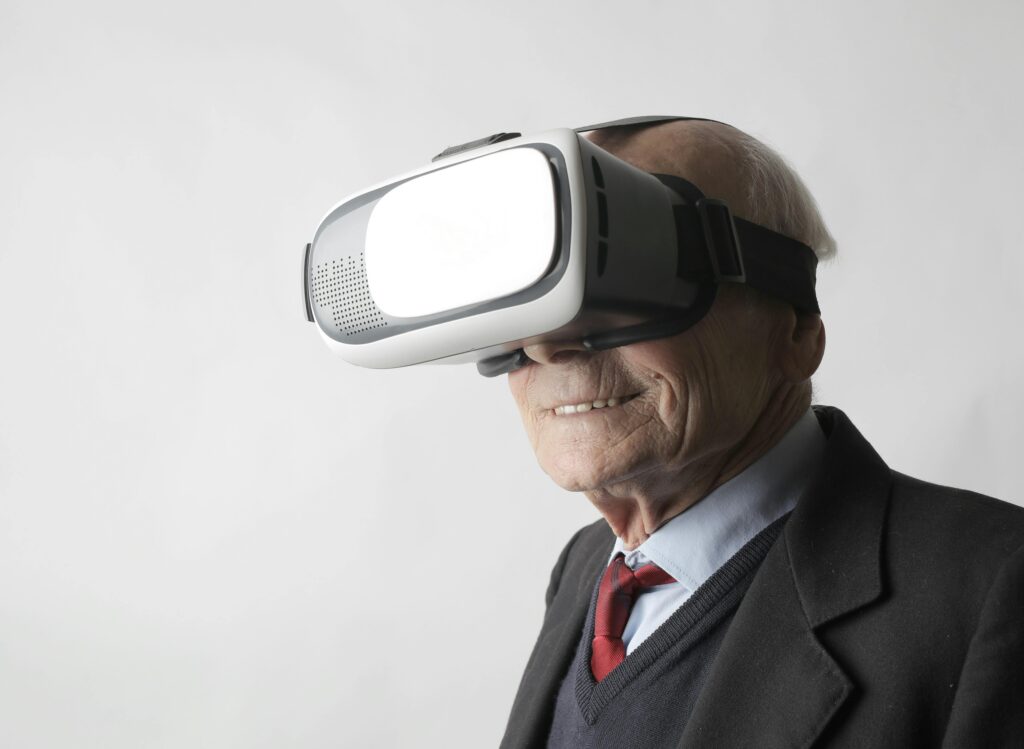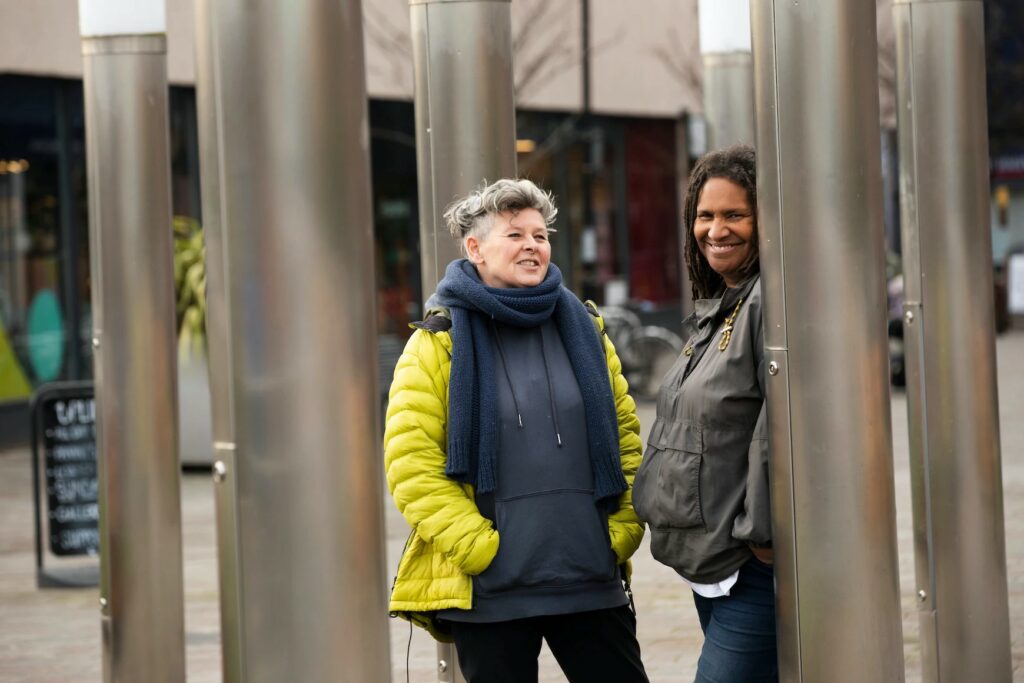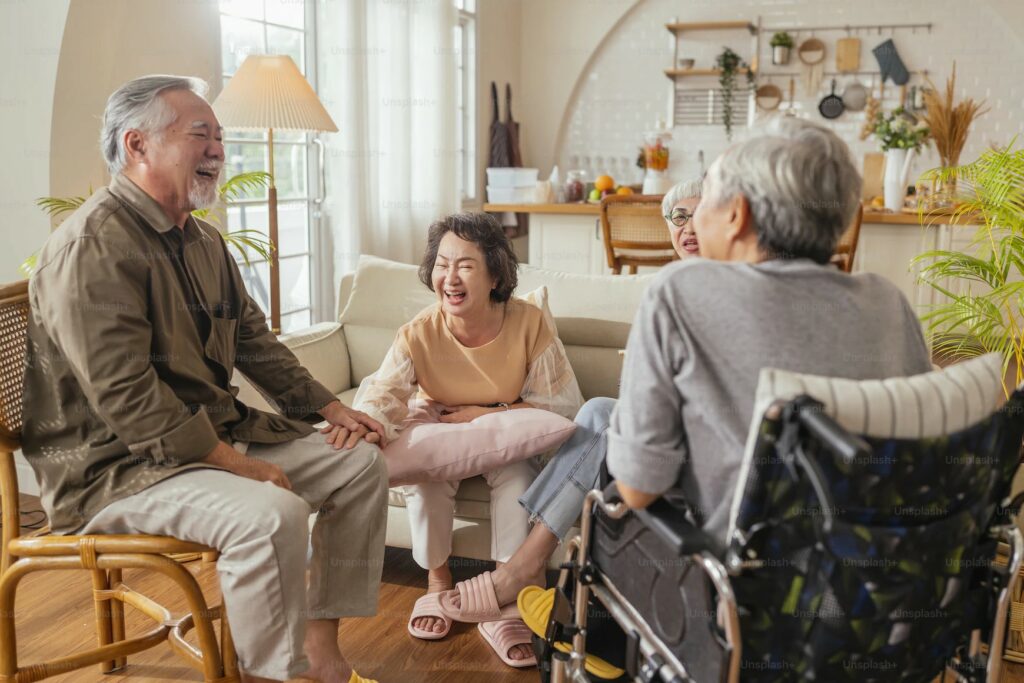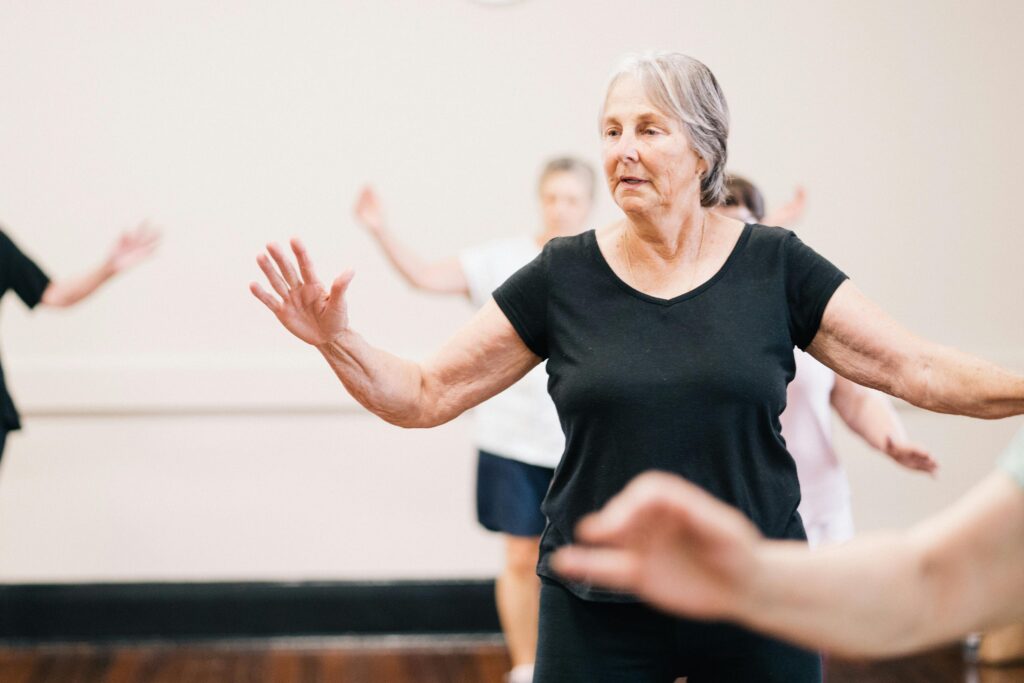Ongoing major research projects led by YU-CARE members are found below. Past research projects on the following topics can be found by clicking on the topic links: Care Work Studies, Cognitive Neuroscience Studies and Healthy Aging Promotion.

Virtual Reality
These projects evaluate Virtual Reality (VR) usability, safety, and clinical effectiveness for people with various health conditions and in different healthcare settings. Examples include people living with dementia, people with epilepsy, and those in the Intensive Care Unit (ICU).
These projects are also studying potential benefits of VR in alleviating hospital staff burnout, as well as, for nursing and allied health professional training.
Principal Investigator: Dr. Lora Appel

Imagining Age-Friendly ‘Communities within Communities’: International Promising Practices
Using two focci: understanding equity, aging and care work in international contexts, and identifying international promising practices and policies to support age- equity and age inclusion. This seven- year SSHRC Partnership Grant has four main themes of investigation: Policies and systems; Environments, designs, and technologies; Approaches to aging and care relationships; and Condition and equity. This project builds on the World Health Organization’s (WHO) ‘Age-Friendly Communities global initiative.
Principal Investigator: Dr. Tamara Daly

Assessing the Impact of DAy programs on individuals living with Dementia and their family/friend Caregivers (AIDA-DemCare): A prospective, cross-provincial cohort study
Most individuals with dementia and their family/friend caregivers want the person in need of care to remain at home for as long as possible. Health systems also want to reduce costly nursing home care. However, doing so safely and well may become challenging with increasing care needs. Day programs aim to maintain or improve older adults’ health and well-being. They also provide respite to caregivers. However, we lack robust, Canadian research on the effects of day programs on older adults living with dementia and their caregivers, especially those of equity-deserving groups with multiple, intersecting vulnerabilities. Partnering with key experts (those in need of care, their caregivers, advocates, day program staff/managers, and health system policymakers) throughout the study, we will address these important knowledge gaps.
Principal Investigator: Dr. Matthias Hoben

VR&R: Providing Respite to Caregivers by Managing Behavioural and Psychological Symptoms in People with Dementia Using Immersive VR-Therapy
Caregivers often describe respite as an internal experience where they can recuperate without removing themselves from a situation. Respite should be ongoing, flexible, and easily implemented and controlled by the caregiver. While home-based respite arguably removes barriers to receiving support for persons with disability and frailty (e.g., transportation, financing), it remains poorly understood how to best deliver effective respite programming. This gap in understanding disproportionately affects essential caregivers (mostly women) of people living with dementia (PwD) who experience high levels of burden. There has been a recent increase in interest in the therapeutic use of Virtual Reality (VR) with older adults, with a number of studies suggesting VR’s potential to manage BPSD and promote quality of life.
Principal Investigator: Dr. Lora Appel

Adult DAy Programs and their effects on individuals with Dementia and their Caregivers (ADAPT-DemCare): Developing program theories on the how and why
Most individuals with dementia and their family/friend caregivers want to receive care at home for as long as possible. Health systems also want to minimize costly nursing home care. However, when care needs become more complex, this may be difficult. Adult day programs aim to maintain or improve older adults’ health, wellbeing, social, physical and cognitive functioning, and independence. They also provide respite to caregivers and allow them to continue working a paid job. However, studies on the effects of day programs are inconclusive. Some suggest positive effects on individuals with dementia (i.e., fewer nursing home admissions, less acute/primary care use, slower physical/cognitive decline, better mental health), and better health and wellbeing of their caregivers. Other studies suggest no or even negative effects. Therefore, guided by a realist lens and partnering with experts (individuals with dementia, their caregivers and advocates, day program staff and managers, and healthcare policy makers), we will review the literature on adult day programs and develop program theories that explain how and why these settings lead to positive, negative, or no effects on individuals with dementia and their caregivers.
Principal Investigator: Dr. Matthias Hoben

Neurocognitive aging and decision-making
Every decision involves the choice to either exploit prior knowledge, towards a more predictable outcome; or to explore new sources of information, with less certain returns. This tension between exploitation and exploration is pervasive in everyday life. Do we return to the same vacation rental again next summer, or take that overseas trip? Do we watch our favourite cable news outlet or seek an alternative perspective? Do we rely on stereotypes or actively engage with unfamiliar others? We have shown that in young adults, decisions to explore versus exploit engage discrete brain regions. We have also hypothesized that an exploitation-bias emerges in later life, attributable to normal age-related brain and associated cognitive changes. Here we will directly test this exploitation-bias hypothesis using a series of decision-making tasks, combined with advanced structural and functional brain imaging, and blood-based biomarkers of Alzheimer’s disease pathology. If our hypotheses are supported, the studies proposed here will provide the first evidence that this fundamental aspect of decision-making, arguably the starting point of all goal-directed thought and action, differs between younger and older adults. These discoveries will enhance our understanding of decision-making biases in later life, ultimately informing surveillance and intervention strategies to optimize function and sustain functional independence in older adulthood.
Principal Investigator: Dr. Gary Turner

Retaining and Attracting Workers in Long-Term Care Homes: How System Dynamics Can Help
The COVID-19 pandemic has made clear the dire need to address underlying long-term care (LTC) workforce and workplace issues that affect resident quality of care and quality of life. These issues include insufficient funding, under-staffing, poor working conditions, complacency towards overburdened and undervalued staff, and lack of regulatory enforcement. These issues also contribute to poor job satisfaction among workers. In recent years, there have been policy changes to improve workforce and workplace conditions. But, some of these ‘fixes’ were later shown to be ineffective or even made the problem worse. These ‘fixes that fail’ are not an uncommon occurrence in complex systems like healthcare. The interconnectedness of factors, the nonlinearity of relationships (can’t draw a straight line between two variables), the feedback processes created in response to policy changes, and delayed reactions all make for a complex system that common quantitative tools used in policy design and evaluation, such as spreadsheet models and regression analysis, have difficulty handling. The proposed research uses novel engineering approaches, including group model building, to create a dynamic model of LTC job satisfaction.
Principal Investigators: Dr. Hannah Wong, Dr. Tamara Daly and Dr. Liane Ginsburg

Exploring Challenges in Identifying homebound Black older adults and understanding what strategies work: a comprehensive scoping review and qualitative case study in the Greater Toronto Area
Older adults who are homebound (HB) tend to stay at home for long periods (like one month), which can lead to declines in physical, mental, social, and emotional well-being. Factors like financial constraints, health issues, disabilities, and the support needed to go out or maintain social ties contribute to homebound status in older adults. These challenges are more common among black older adults due to differences in social and environmental conditions influenced by factors such as residential location, zoning rules, and land-use policies.
In this project, our goals are to:
a. Collect information on how, where, and when to find homebound Black older adults in the Greater Toronto Area (GTA) by working with various groups like Black individuals (older adults and family members), mail carriers in the Black community, community health and social care workers, and home meal delivery workers. – Through Interviews
b. Work together to come up with culturally sensitive ways to locate homebound Black older adults, talk about difficulties, and suggest solutions. – Through A full-Day Stakeholders Meeting
SSRCH Insight Development project and Black Seed Grant
July 2024 - June 2026
Principal Investigator: Dr. Michael Kalu

Bridging Mobility Gaps: Co-designing Culturally Appropriate Mobility AI-Powered Wearable (CAMAiW) Tool (prototypes) for Black, Indigenous, and People of Color (BIPOC) older adults
Wearable devices, like fitness trackers and watches, are helpful for older adults to move better. These devices check how well older adults move by looking at speed, distance, location and many other things. Our research shows that no tool combines all these things and considers people’s culture.
Our team is creating a unique tool called Culturally Appropriate Mobility AI-Powered Wearable Tool (CAMAiW) for older adults (55+) from Black, Indigenous, and People of Color (BIPOC) communities in three steps. CAMAiW will be a band with features like speed, distance, and how muscles work—all in one device.
Connected Minds Seed Grant
March 2024 - March 2026
Principal Investigator: Dr. Michael Kalu

Empowering Health Equity Through Prevention and Self-Management: Co-Designing Culturally Tailored Pre-Clinical & Diabetes Education for Black Older Adults in Peel
Diabetes is more prevalent in black population due to genetic dispositions, lifestyle factors, socio-economic disparities and limited access to healthcare. To date, strategies that have been used to prevent, and help older adults with diabetes with self-management have commonly used a European-centric approach “one-size-fits-all” approach, that is proven ineffective when it comes to education. It is of no surprise that uptake of these strategies have been low in ethnically diverse population, including Blacks, highlighting the need to co-design culturally-tailored self-management strategies to prevent or manage diabetes among black older adults.
The Novo Nordisk Network for Healthy Populations
2024 Network Catalyst Grant
NPA: Dr. Kristina Kokorelias & Dr. Michael Kalu
